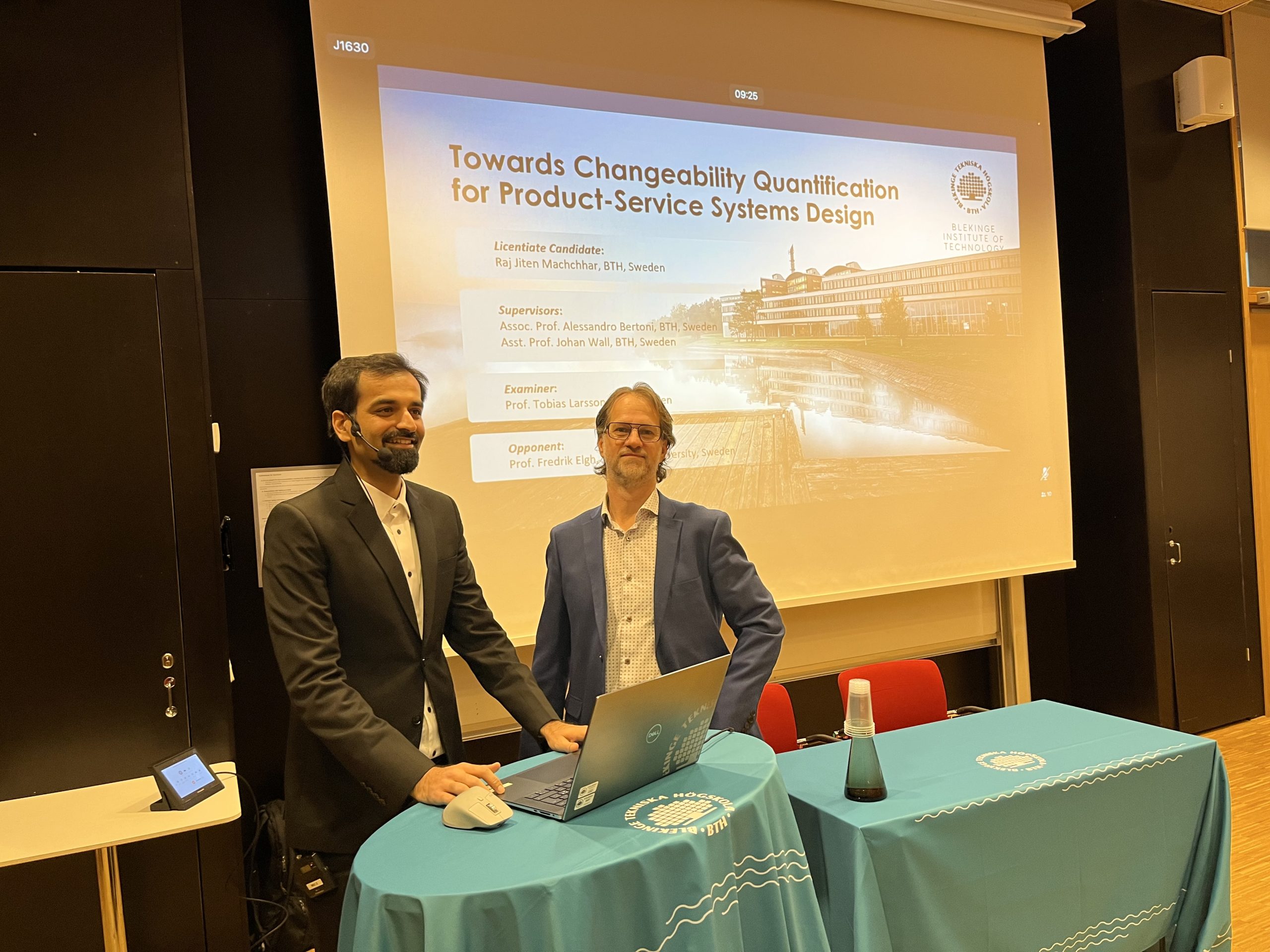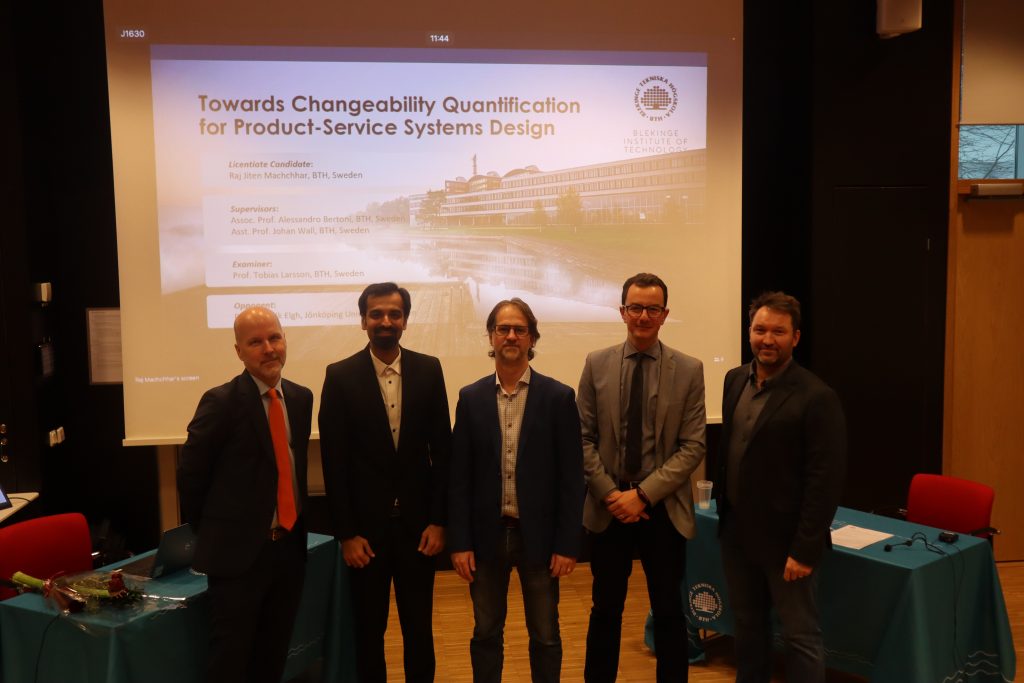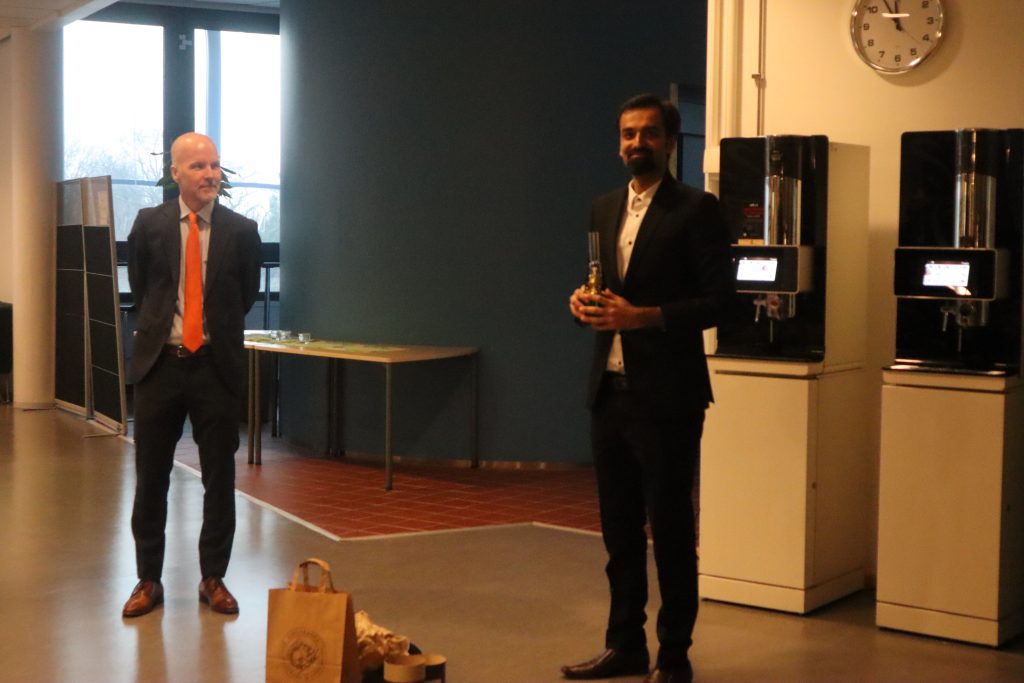
Congratulations Raj Jiten Machchhar, Licentiate in Mechanical Engineering!
- Post by: Tobias Larsson
- 17th December 2022
- No Comment
Raj Jiten Machchhar presented his licentiate thesis entitled “Towards Changeability Quantification for Product-Service Systems Design” in front of an hybrid audience of online listeners and physically present people.
Raj made a popular presentation of the WHY and HOW of his research and took the audience through his findings so far (thesis consists of a summary part and four individual research publications) and then landed in a summary of his findings. Raj has been working within several applied projects; MD3S, VAVIM, TRUST-SOS, ASPECT and FELD.

Opponent for the day was Professor Fredrik Elgh of Jönköping University. Fredrik went went deeper into details of the thesis to press Raj and enrich the knowledge around the material, and also to understand the different viewpoints of Raj research, leading up to a good discussion.
At the end also the audience had the chance to ask questions on the research.
Examiner Professor Tobias Larsson then concluded by declaring that Raj had passed the exam and achieved the licentiate degree.

Thesis abstract
Tough competition and volatile global markets have pushed the manufacturing industries to develop solutions more customer-centric with optimal utilization of resources. One of the key reasons behind developing a customer-centric solution is the increased customer value that imparts a competitive edge to the manufacturing industries, eventually leading them to sustain their businesses. Over the years, this has led the transition of manufacturing industries towards offering “functions” instead of pure products. Academic literature often describes this change as the transition towards offering a Product-Service System (PSS), where the functions are typically delivered as a mix of products and services.
Developing PSS is a highly challenging task as value entails a multi-dimensional viewpoint based on different stakeholders and many novel technologies integrated along uncertain lifecycles. An optimal PSS for a specific occasion becomes situational as this occasion is bound to change due to underlying future operational uncertainties. This view accentuates the need for inculcating mechanisms in the PSS to sustain value under operational uncertainties, thus attaining value robustness. Literature in systems engineering elaborates on changeability as one of the cores for developing a value-robust system. A changeable system is a system that can change internally as a response to the changes externally to maintain the value expectation over time. With this frame of reference, it is argued that the notion of changeability can be a good supplement for developing a value-robust PSS. From a design perspective, changeability needs to be quantified to strike a balance between the total change-related cost and the benefits.
In this light, this thesis is directed toward the quantification of changeability for supporting early design decisions concerning value-robust PSS. To achieve this goal, this thesis first highlights the challenges concerning changeability quantification for a value-robust PSS design. Building on these challenges, it delves into established techniques of design optimization, dynamic programming, and discrete-event simulation to propose a framework that can exemplify the relationship between system configuration, system control, and contextual variables to gain insights about a suitable combination of configuration and control of the system to maintain its value in uncertain operational scenarios. To enhance the proposed framework with operational data, an outline of the state-of-the-art in the collection and utilization of operational data to support design decision-making is presented. Finally, the thesis concludes by highlighting the strength and weaknesses of the proposed framework along with some industrial implications. Broadly, two challenges are emphasized in the proposed framework, computational complexity and lack of contextual knowledge, and addressing them has been left for future studies.
Keywords: Changeability quantification, early design, Uncertainty, Value robustness, Operational Scenario, Product-Service Systems, Systems Engineering
Thesis link: http://urn.kb.se/resolve?urn=urn:nbn:se:bth-23781
